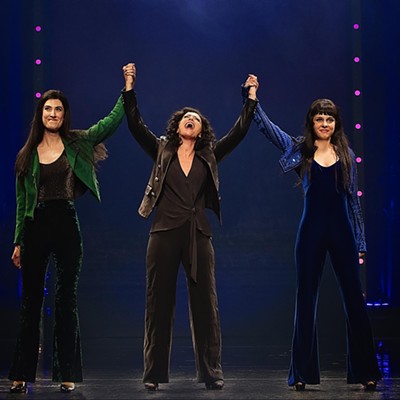Support Us
Houston's independent source of
local news and culture
account
- Welcome,
Insider - Login
- My Account
- My Newsletters
- Contribute
- Contact Us
- Sign out
An SJW Video Game Manifesto: The 10 Essential Social Justice Gaming Works
Jef Rouner July 31, 2015 8:00AM
[
{
"name": "Related Stories / Support Us Combo",
"component": "11591218",
"insertPoint": "4",
"requiredCountToDisplay": "4"
},{
"name": "Air - Billboard - Inline Content",
"component": "11591214",
"insertPoint": "2/3",
"requiredCountToDisplay": "7"
},{
"name": "R1 - Beta - Mobile Only",
"component": "12287027",
"insertPoint": "8",
"requiredCountToDisplay": "8"
},{
"name": "Air - MediumRectangle - Inline Content - Mobile Display Size 2",
"component": "11591215",
"insertPoint": "12",
"requiredCountToDisplay": "12"
},{
"name": "Air - MediumRectangle - Inline Content - Mobile Display Size 2",
"component": "11591215",
"insertPoint": "4th",
"startingPoint": "16",
"requiredCountToDisplay": "12"
}
,{
"name": "RevContent - In Article",
"component": "12527128",
"insertPoint": "3/5",
"requiredCountToDisplay": "5"
}
]
A brief note: Despite the use of the word "manifesto," this was not compiled by a secret liberal cabal and cultural Marxism is still not a thing.
That’s Social Justice Warrior if you’ve been out of the loop on game culture over the past couple of years. It’s meant as a derogatory term to mock critics of video games who seek to address sexism, racism, representation, homophobia and other problems in the medium. As an insult it doesn’t stick very well because being called Batman even ironically is pretty flippin’ sweet.
The rise of more mature artistic criticism in video games has led to a core set of what I consider essential reading on progressivism in interactive media. Brilliant and in-depth explorations of what gaming is, what it could be and what it all means about us. It’s an exciting time to be a gamer and witness these conversations.
So I thought I’d craft a list of those essential works. This is by no means meant to be comprehensive, just a nice collection of good places to start. I hope that the others will suggest more in the comments, and that even for detractors of social commentary on games, it will at least serve as a handy guide to the SJW mind-set.
Anita Sarkeesian – Damsel in Distress (Part 1)
The most inexplicably controversial woman on the Internet, Anita Sarkeesian’s web series of feminist video game critiques has been lauded for shining a light on representation of women even as anti-feminist hate mobs hounded and harassed her so hard it became national news. The first video in her Tropes vs. Women in Video Games series is probably her most helpful and least objectionable to the close-minded. In addition to being a very basic look at gaming’s oldest and laziest trope of the kidnapped princess, it’s also a handy history guide to the evolution of the early gaming industry.
Leigh Alexander – “Gamers” Don’t Have to Be Your Audience. “Gamers” Are Over
Admittedly, Alexander’s ranty take-down of the traditional gamer stereotype resonates most with me because she uses her platform to also show how talking about games as a journalist has progressed. The thrust of her famous piece, though, is that the divide between gamers who identify gaming as a culture and people who just, you know, play video games the way they watch TV and read books, is largely a product of greater artistic diversity in modern titles, particularly indie ones. As the types of games and game stories expand, increasingly players do not want to be associated with gamers who think of the get-a-gun-and-win-the-girl style as the only real way to play. The good news is they don’t have to, as the exclusionists become ever more irrelevant.
Kom Kunyosying and Carter Soles – Postmodern Geekdom as Simulated Ethnicity
Though this very expansive essay isn’t about video games or gamers per se, it is still a deep work on how people who identify with geek culture can sometimes use that identification to take on the characteristics of an actual oppressed minority. I’ve seen more than a few people describe gamers as the most discriminated against group of people in America, but it all comes back to an artificial ethnicity they have assumed. Kunyosying and Soles explain it extensively and how it’s grown over the course of decades.
Jay Allen – How Imageboard Culture Shaped GamerGate
A more games-centric and modern version of Kunyosying and Sole’s work was done by Jay Allen, who dissected the anonymous nature and argument worship shared by the users of sites like 4chan. This in turn sheds a lot of light on how Internet hate mobs evolve, particularly in game circles. Allen’s essay extrapolates well to behavior in comments sections, Reddit and Twitter and that behavior’s effect on marginalized people, though frankly it’s a scary read that feels as if it crawled right out of a William Gibson novel.
Tauriq Moosa – Colorblind: On The Witcher 3, Rust and Gaming’s Race Problem
Up to this point, a lot of commentary has been about women in gaming because as has been proven time and time again, any sort of affirmative action will benefit white women more than any other group. Tauriq Moosa addresses the equally prevalent problem of race in gaming through the lens of the lily-white Witcher 3 and a look at the random race-generator in the game Rust. Moosa broadens these examples out nicely to discuss how race is seen in gaming as a whole. Of special note is Moosa’s declaration that being white is apolitical in media, whereas being a person of color is mostly seen as having a political motivation.
Ian Danskin – Why Are You So Angry?
Danskin wrote and recorded his six-part video series as a direct commentary on the harassment of Anita Sarkeesian. In doing so, he, probably more than any other commentator, unpacked why a perceived challenge to games content invokes such a rancorous response from many gamers. It’s an autopsy of the loss of innocence that learning the concept of privilege brings about. If you happen to need a highly watchable primer for someone wondering why the Internet has been on fire about gaming in the past year, Danskin’s is the best.
Katherine Cross – The Nightmare Is Over: They’re Not Coming for Your Games
At one point there was a legitimate question over censorship in gaming, but that question has largely been settled through the rating system, and it only ever comes back up when some clown makes a game like RapePlay. However, the specter of Jack Thompsons and Joe Liebermans and worst of all Mom sweeping in and denying gamers their chance to chainsaw people to death ended up giving a lot of gamers a persecution complex. With the persecutors now gone, virtually irrelevant or — worse — now gamers themselves, some gamers still seek something to fight even though their giants are windmills. Cross’s opinion piece walks a reader through several of these rallying cries against perceived censorship.
Patricia Hernandez – Three Words I Said to the Man I defeated in Gears of War That I’ll Never Say Again
This piece resonates deeply because of its personal nature. Hernandez describes a Gears of War match in which she ended up in a near-inhuman range against another player, killing him brutally and using a game mechanic to simulate raping him while expressing the same sentence over voice chat. Hernandez, a rape survivor herself, looks back on the experience and discusses how something that’s seen as a typical part of the culture of a particular game can bring out the Hyde in people and make light of real-world problems. It’s a very uncomfortable read, but it illustrates how pervasive things like rape culture can be when they are as common to gameplay as camping spawn points.
Maddy Myers – Grand Theft Auto Will Never Change, But We Can
As Mortal Kombat did in the ‘90s, the Grand Theft Auto series is largely our measure of what is the bottom level of acceptability in game content. Other games do worse, but GTA remains a hugely profitable franchise unlike, say, Dante’s Inferno. Mark my words, the day that game-making changes in a big way regarding things like violence against women or the abuse of sex workers in games, it will be either because GTA gets better or because a title flops for not doing so. Myers’s detailed explanation of various game mechanics as well as their reception to female players and the blind idea that the media we consume doesn’t affect us in a fundamental way will be quoted on that day.
Mattie Brice – An Escape of One’s Own
Picking a single Mattie Brice piece was hard. Everything the woman writes is simply marvelous. As best as she can be summed up, this piece does. A common deflection of game criticism is that games are merely escapist fancies not to be taken seriously. For someone like Brice, though, who is trans and multiracial, that escapism aspect is often lacking. I, as a cis white straight male, can lose myself in any number of games designed explicitly to reinforce whatever power fantasy I would like. Brice does not have that option. Nearly every game world others her as much as the real world, so where’s the escape? More than anything else, it’s a nice essay encouraging us to look at ourselves and seek to expand our privileges, however few they may be or seem, to those who do not possess them.
Jef has a new story about robot sharks out now in Lurking in the Deep. You can also find him on Facebook and Twitter.
KEEP THE HOUSTON PRESS FREE...
Since we started the Houston Press, it has been defined as the free, independent voice of Houston, and we'd like to keep it that way. With local media under siege, it's more important than ever for us to rally support behind funding our local journalism. You can help by participating in our "I Support" program, allowing us to keep offering readers access to our incisive coverage of local news, food and culture with no paywalls.
Jef Rouner (not cis, he/him) is a contributing writer who covers politics, pop culture, social justice, video games, and online behavior. He is often a professional annoyance to the ignorant and hurtful.
Contact:
Jef Rouner
Trending Arts & Culture
- Best Bets: Earth Day, Noche Caliente and a Spring Festival
- Houston Bookstore Crawl Celebrates Small Businesses and Literary Diversity
- Reviews For The Easily Distracted:
Abigail
-
Sponsored Content From: [%sponsoredBy%]
[%title%]

Don't Miss Out
SIGN UP for the latest
arts & culture
news, free stuff and more!
Become a member to support the independent voice of Houston
and help keep the future of the Houston Press FREE
Use of this website constitutes acceptance of our
terms of use,
our cookies policy, and our
privacy policy
The Houston Press may earn a portion of sales from products & services purchased through links on our site from our
affiliate partners.
©2024
Houston Press, LP. All rights reserved.





